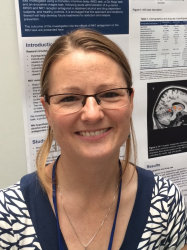BibTex format
@article{Nestor:2016:10.1111/adb.12444,
author = {Nestor, LJ and Murphy, A and McGonigle, J and Orban, C and Reed, L and Taylor, E and Flechais, R and Paterson, LM and Smith, D and Bullmore, ET and Ersche, KD and Suckling, J and Tait, R and Elliott, R and Deakin, B and Rabiner, I and Lingford-Hughes, A and Nutt, DJ and Sahakian, B and Robbins, TW and ICCAM, Consortium},
doi = {10.1111/adb.12444},
journal = {Addiction Biology},
pages = {1576--1589},
title = {Acute naltrexone does not remediate fronto-striatal disturbances in alcoholic and alcoholic polysubstance-dependent populations during a monetary incentive delay task},
url = {http://dx.doi.org/10.1111/adb.12444},
volume = {22},
year = {2016}
}

